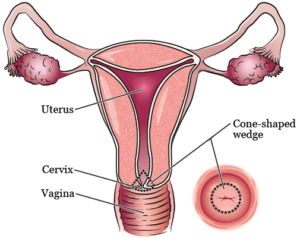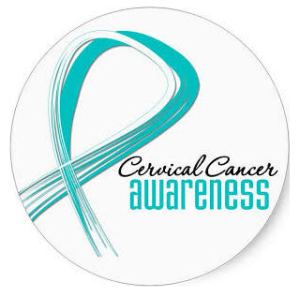Happy New Year everyone, and welcome to the month where we spread awareness on cervical cancer. Women are typically diagnosed with cervical cancer between the ages of 35 and 44, but we would like to inform people of all ages on how important it is to get regular screenings to prevent the cancer from forming or getting worse.
What is cervical cancer:
Cervical cancer is a type of cancer that forms in the cells of the cervix (see image to identify the cervix). Cervical cancer can be developed by the human papillomavirus (HPV), which is a sexually transmitted infection (STI) that may or may not show symptoms. However, the symptoms can range from warts in various parts of the body, to cervical cancer although warts are the most common symptom.

Preventing cervical cancer:
We encourage you to do the following things to reduce the chances of getting cervical cancer:
- Consult with your primary care doctor to get regular screening tests such as the pap smear.
- Get the HPV vaccine to fight against the infection.
- If you feel as if you have any signs or symptoms, make an appointment with your doctor.
Treatment:
Cervical cancer does not go away on its own, there needs to be treatment to prevent it from growing worse.
Treatment of cervical cancer depends on the stage of cancer, your personal health and preference. The three typical treatments are radiation, chemotherapy, or surgery. Once again, if you feel as though you have the symptoms listed below, call your primary care doctor to schedule an appointment to get a screening and review your options.
Symptoms
-Vaginal discharge that is watery or unusual
– Abnormal vaginal bleeding, between or after intercourse, or heavier and longer periods
-Pain in your pelvic area

Sources:
https://www.mskcc.org/cancer-care/patient-education/instructions-after-cone-biopsy-cervix
https://www.mayoclinic.org/diseases-conditions/cervical-cancer/symptoms-causes/syc-20352501
https://www.mayoclinic.org/diseases-conditions/cervical-cancer/diagnosis-treatment/drc-20352506

